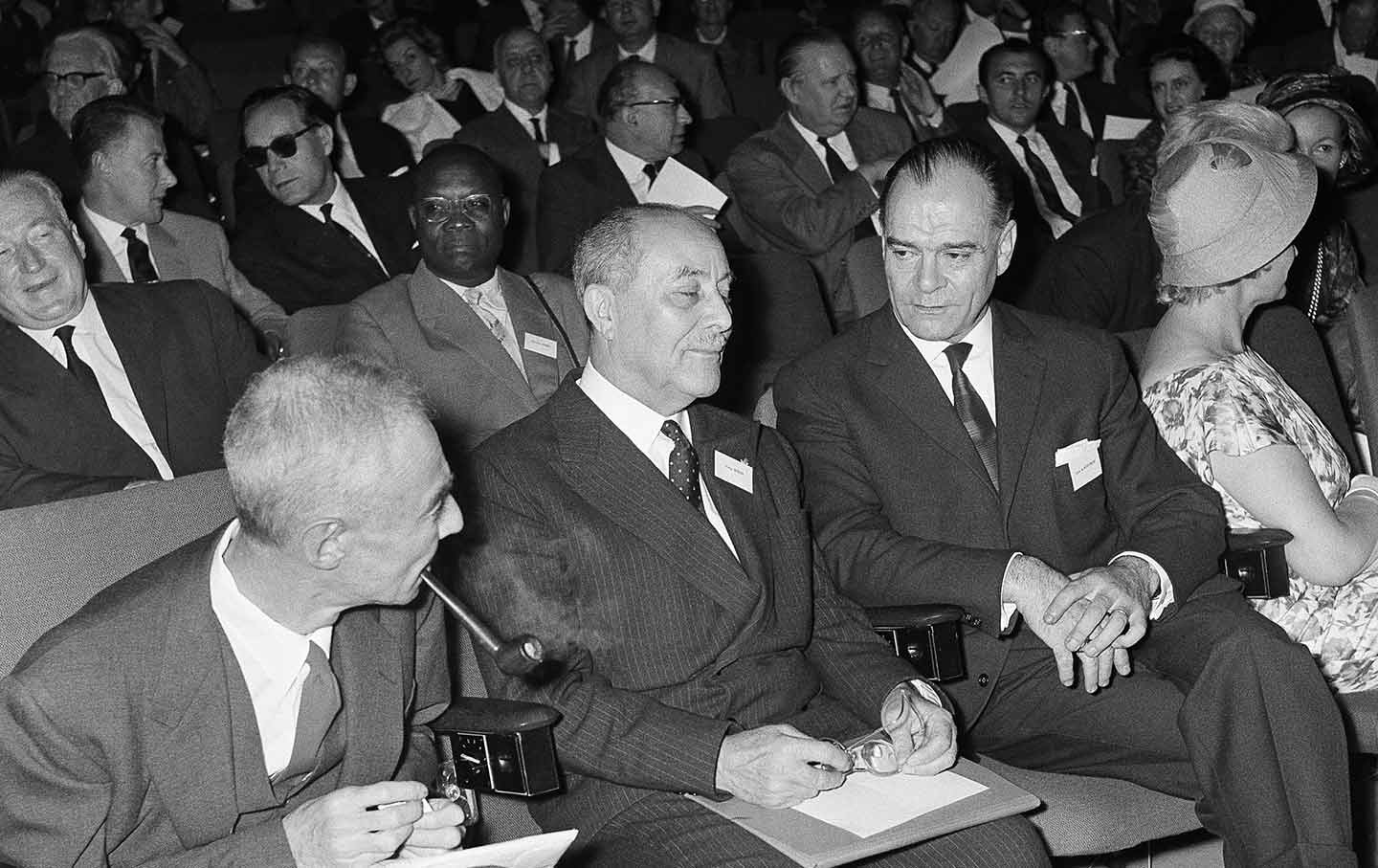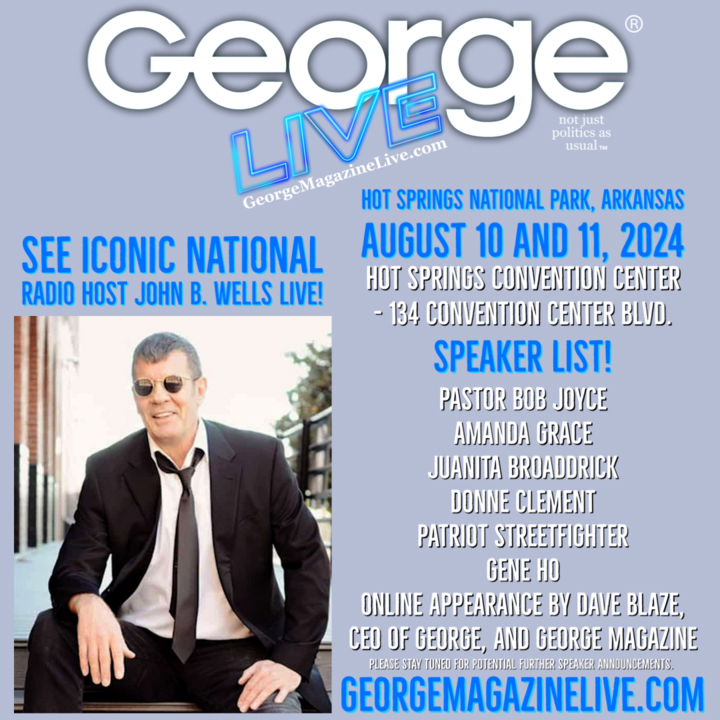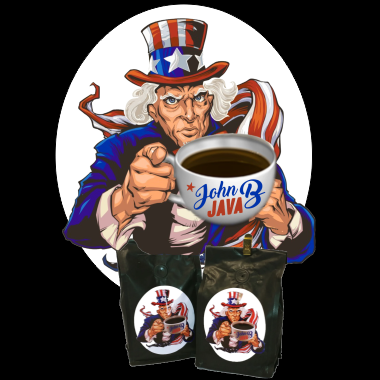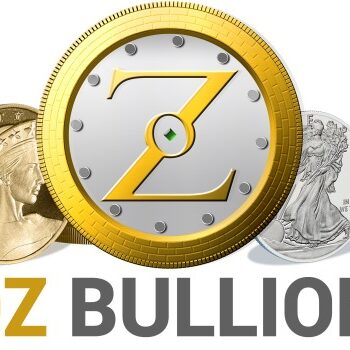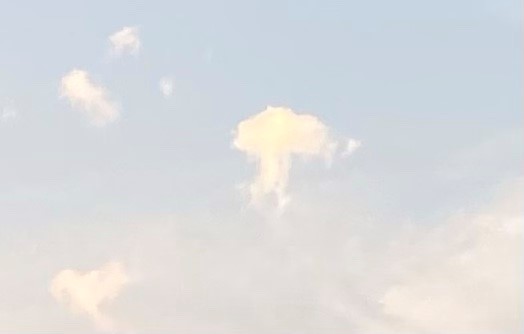“Culture and politics are siblings. It’s not a separate niche category.”
Whitney, who is 44, took an MFA in writing at Columbia in 2000 and wasted little time afterward. In 2004 he co-founded Guernica, a well-considered online magazine where he is now an editor-at-large. Its name is nicely to the point: Like Picasso’s celebrated painting depicting the celebrated Spanish town, Guernica sits at the ever-interesting intersection of art and politics. This is, indeed, where Whitney makes his intellectual home and the hardly implicit theme of Finks. “Culture and politics are siblings,” Whitney said. “It’s not a separate niche category.”
I met Whitney in a quiet corner off a hotel lobby in midtown Manhattan, where we spoke for more than two hours. Satire, sarcasm, parody, irony, snark: There is little trace of these rhetoric’s in Whitney’s conversation. I found him, instead, courteously measured and considered in his responses. What follows is the first of two parts. There are ellipses galore: I had to cut considerably for the sake of length, but no important point Whitney made during our exchange was lost.
I again thank Michael Conway Garofalo for producing the transcript. I asked Michael when he was finished if he found the conversation interesting, as I always do. “Fascinating,” he replied. “The breadth and depth of what Whitney details is staggering.” It was my thought, too.
You’ve written a very good book and you’ve published at a very propitious moment. We’ll get to our current circumstances in a while. I’m eager to hear what the author of Finks has to say about what one has to consider crises in our politics and our media—which are inseparable, of course. But let’s begin with what drew you to your topic. “The cultural Cold War” is a very specific interest of mine. How did you find your way to it?
I came into this topic through the subsection of the cultural Cold War that is magazine publishing. Having launched a magazine online, having been a poet at Columbia just before launching that magazine, I saw magazine editing, at first, as a way to engage with creative writers I liked. One of my professors at Columbia was the poetry editor of The Paris Review, Richard Howard. He was one of my mentors. He’s a translator, too, and an interesting essayist and critic as well…. Some friends who had also done MFAs wanted to launch various magazines, and it always seemed like The Paris Review was the gold standard. By the time we launched what became Guernica, we were well into the [George W.] Bush years and facing a second, unfortunate term, and we wanted to engage with politics and poetry, fictions and essays, and direct criticism, not just of books, but of the state of things. I was maybe the only one who wanted to sell the budding magazine to people by describing it as “The Paris Review meets The Nation.” I was just trying to figure out how to get the sensibility we were going for into people’s minds. A certain generation, often white boomers of a certain socioeconomic class, would often say, “No, The Paris Review is The Paris Review, and that’s a literary magazine, and literary magazines are not political by definition.”
That thought must’ve landed with a thud.
Yes, I thought that was a strange notion. There’s a generation of lit mags that thought of themselves as apolitical. The Paris Review is one, maybe The Kenyon Review is another. They were influenced by the New Critics—less engagement with history and more engagement with the text. Anyway, flash-forward to maybe 2010, I think; I belatedly saw a New York Times story about Immy Humes’s film Doc, and there were those blurbs about The Paris Review’s alleged CIA ties, or Peter Matthiessen’s alleged CIA ties, and I thought, I’m interested in this. [Harold “Doc” Humes was a Paris Review co-founder, Immy Humes his daughter. Doc was released in 2008.] Why would an apolitical magazine interest the CIA? Would it have been just for his [Matthiessen’s] cover, as I later found out he said? Or would it have been of interest for its own doings? And that’s when I discovered the story, told through people like Frances Stonor Saunders [The Cultural Cold War: The CIA and the World of Arts and Letters, 1999] and Hugh Wilford [America’s Great Game: The CIA’s Secret Arabists and the Shaping of the Modern Middle East, 2013]. I got interested then, and it became an obsession.
This question of the apolitical magazine. If you go back to the years when the events you’re writing about took place, it was a dreadful charge to be told one is “being political.” That was prima facie to be condemned. This all comes under the heading of The End of Ideology, to quote the title of Daniel Bell’s book. There is nothing so monumentally political as that which declares itself apolitical.
Yes, that’s correct.
So here you are at Columbia, a student of a very honorable poet, and The Paris Review is on your mind. And then you find out that it is shot through with spooks. Did it distress you?
I don’t think I initially thought it was shot through. I thought it was all about Peter Matthiessen.… I didn’t find out until 2010 that I had missed this story of the ties through Matthiessen, and I instantly began looking for a way to talk about this decades-old story and what would make it fresh. My sense was that since that book [Stonor Saunders’] came out in 1999 in London, and 2000 here, there was a certain group that had missed it, maybe Generation X, certainly the millennials, and maybe people of different ages who came onto the web and the web debates after that.… My sense was that these web debates wouldn’t have happened, and I was very much in the web publishing sensibility by then….
I was told one story about Barney Rosset having a run-in with these guys and being told that he should publish more non–Communist Left Latin Americans, and that when he said “fuck off” or whatever he was supposed to have said, Matthiessen, Plimpton, and Styron—who are gentlemen if nothing else; I couldn’t picture them doing this—left him on a jungle road while at a writers’ conference [in Puerto Rico] after spending half an hour driving around looking for a bar. I was getting put in contact with Rosset that very week, and he died. So I waited what I thought was a respectful two weeks or a month before bothering his widow, Astrid Meyers Rosset, and she graciously gave me an early chapter from his memoir that was still being edited [Rosset: My Life in Publishing and How I Fought Censorship, 2017], but we couldn’t find in the manuscript anything resembling the incident where Rosset was kicked out of the car. It sounded apocryphal. There was one chapter where she said he talks about this writers’ conference in Puerto Rico. Anyway, it was a dead end.…
So I went to the Morgan [Library in New York]. And there was a whole folder called “The Congress for Cultural Freedom.” I thought, This could be a eureka moment. I started reading it and there were, sort of delineated in these wonderfully written letters between New York and Paris, the story of The Paris Review’s attempt to add relevance by “being political” in the responsible way, as it was seen at the time.… Later you would hear, exactly to your point, how Matthiessen would describe Baldwin as a polemical writer, and he didn’t mean it as a compliment.…
Parenthetically, Peter Matthiessen couldn’t change Jimmy Baldwin’s typewriter ribbon, as we used to say, but we’ll leave that. I think we need to stop and define a couple of terms. Let’s define the cultural Cold War and what we mean. And let’s explain the role, maybe the essential role, of the Congress for Cultural Freedom, the CCF.
It seems that there were some people after World War II, some of them landed in Berlin circa 1946, and they were watching a lot of the Allied troops, a lot of young workers who had arrived, and their interest in Soviet culture. It was the transition between the US and allied military occupation of Europe and the Marshall Plan, and so workers were starting to get there. These guys would see the soldiers from the Allied section of Berlin going over to the Soviet quarter, and they were going over for culture—a movie would be screening, or a symphony orchestra. And some of these guys quickly understood that the United States wasn’t known for its high culture; it was known mostly for its Hollywood movies and maybe Cadillacs and tanks and hamburgers.
They decided that, as the occupation and the Marshall Plan were creating this weird blowback, where people felt completely beholden to the United States, there needed to be…I think some of these guys who went on to create the CCF just wanted a Ministry of Culture. They couldn’t do it in the late ’40s, and they certainly wouldn’t have felt like they could have done it openly in the McCarthy era proper. So they had this new secret budget.… Rather than have this land in some sort of known propaganda side of the US government, through the State Department or somewhere else, it ends up becoming a covert CIA program, with the caveat that it was started under the OPC—the Office of Policy Coordination, which was Frank Wisner’s little realm—which was kind of straddling between the State Department and the CIA. [Wisner served in Europe for the Office of Strategic Services during the later war years and went on to a long career in the CIA.]
That’s the back story. They wanted a Ministry of Culture. Some of them very sincerely believed that culture would influence the way the hard Cold War went, so people started calling it the cultural Cold War. I think it was actually Christopher Lasch who coined that, as early as ’67 or ’68.… He defined it as two tiers: the experts, the cultural geniuses up front and on the cover for their creative work; and then these other guys who could take a hint, and I think he meant people like Irving Kristol, who weren’t as smart, who weren’t as good, but they would be the ones on the inside doing the op-eds and pulling the strings and reporting back to headquarters.
The Congress for Cultural Freedom was within the OPC. There were a number of fronts that they wanted to beat the Soviets out of: labor, students, and culture being just three of them. Eventually they were doing stuff in refugee relief. They had penetrated the IRC [International Rescue Committee], in their way, which was another interesting story, but the Congress for Cultural Freedom’s main outlet was the almost three dozen magazines that the CIA directly created.
What was interesting to me is they also started working with other magazines that they saw as friendly, which would vastly expand their influence on intellectuals. They called a conference with these magazines to coordinate their anti-communism and American cheerleading and named the scheme “the clearinghouse of little magazines.” They had a few names for it. I refer to it as the publishing clearinghouse. They wanted to have a conference of magazine editors and they wanted to be very clear that anti-Americanism could be a deal-breaker for the cultural Cold War.…
The CCF was headed by this guy called Michael Josselson. They created magazines, they sponsored symphony orchestras and junkets. I think the first things they did were these conferences that were intended to be the West’s answer to the World Peace Council. [The WPC was founded in Paris in 1949 under Cominform influence.] It was sort of like, “Let’s rally the writers.” It’s the same impulse we have now—“Writers resist Trump!” They were “resisting” Stalin-penetrated cultural organizations and propaganda.…
Paris was very hot after the war. There’s now a considerable subgenre of writing on this topic. I came to it through the Guilbaut book [Serge Guilbaut, How New York Stole the Idea of Modern Art: Abstract Expressionism, Freedom, and the Cold War, 1983], about the perverse use made of the Abstract Expressionists. As you mentioned, Frances Stonor Saunders came along with The Cultural Cold War, which is a fairly comprehensive treatment. What was your intent when you set out? What were, or are, you after in Finks? Your bent is the literary scene. You’re not doing orchestras or painters.
Correct. My cultural filter is literary publishing and its weaponization.… I thought it was becoming more relevant, first in the Bush years as the way this is happening was changing, but equally relevant under Obama—the way culture will or won’t be used, the way the media are often seen as an outlet for winning support for an intervention: The way that was changing.…
One of the things I was after was telling the story of the cultural Cold War not in its typical little academic bin, which completely separates it from history and the political Cold War, the so-called real Cold War, and to restore the idea that they were both happening at the same time. I wanted to see—having lived in a place like Central America, where so many coups had happened—what the cultural Cold War would look like next to a history of political interventions in a place like that. I wanted to see: Did the Congress for Cultural Freedom, the propaganda front, the secret Ministry of Culture for the West, actively support and defend coups and things of that nature? The answer was yes.…
But again, since it was done through a secrecy regime, through secret patronage, through a secret budget of the CIA, the second big feature of the Congress for Cultural Freedom—the first was secrecy—the thing that comes out of that secrecy is subtlety. If Soviet propaganda was often ham-fisted or too obvious—they supported writing directly; they had a writers’ union, they gave their writers houses in the suburbs of Moscow—there has to be an alternative, and that has to be made, as much as it can be, into a negative. The way to do that, I think they understood, was: “Our version of this, by definition, has to be subtle so it’s not ‘outed.’” Then it can also gesture toward the heavy-handedness of the Soviet equivalent.
Therefore, if you’re going to look for it defending some of the worst aspects of US policy, you’re going to have to look very carefully, but in the end, you do see regular defenses of NATO alliance configurations, US policy. I didn’t spend as much time looking at Encounter [the CIA–funded journal founded in London by Stephen Spender and Irving Kristol in 1953], because Stonor Saunders had done such a good job of that. I certainly quoted some of her big findings. She found structural censorship in the Congress for Cultural Freedom’s very explicit marching orders—meaning a standing order to show something to the Congress/CIA brass if it might be controversial.
I looked into Costa Rica, I looked into Africa, as much as I could, Arab magazines. I wanted to tell the story more globally. Stonor Saunders told, I think, the definitive story for Western Europe, and she gave some of the outlines of the story globally, but I wanted very explicitly to put it into a political context by looking at how the coups may or may not have been supported by the propaganda. There are these great stories of the disasters of the CIA’s coups, and when you read them you’re astonished that the CIA wasn’t shut down long ago.…
These stories keep coming up again and again. By the middle to late ’60s, when it’s exposed, the intellectuals were ashamed to be associated with the CIA. So I wanted to sort of bridge the gap—to break down the wall between the Cold War and the cultural Cold War, and to marry [the latter] with those great books, by people like Stephen Kinzer, of political assassinations and the CIA’s legacy of ashes. I wanted to marry the legacy of ashes to the legacy of letters and see if they were the same tale. I think they are.
You name a lot of names, which I found riveting from page one onward. Some were previously disclosed, some new, at least to me, and they’re now all in the same place. I was astonished as I read some of these—and they’re more or less endless. George Plimpton, Peter Matthiessen, James Michener, Arthur Hayes Sulzberger, William F. Buckley, of course, Robert Lowell of all people, the Asia Foundation, The Paris Review, Viking Books, William Morrow, Sol Stein and Patricia Day, Bill Styron, Richard Wright, W.E.B. Du Bois, Lillian Hellman, Arthur Miller, Isaiah Berlin, James T. Farrell. It just doesn’t stop.
Those on the list I just read are one or another degree of separation from active participation. Then we have the unwittingly used, and then those who resisted, who declined to participate—some excellent names there: Baldwin, the late John Berger—and then the targets, who, along with the resisters, I think, are the heroes of your book, figures such as Pablo Neruda and Miguel Ángel Asturias, the great novelist of Guatemala. Your sections on Latin America are very good, maybe because you lived there.
I’m astonished, in short. What did you think as your work went on and these stunning names began to accumulate in your text? Were you surprised?
Yes.… All of these people were being sought, targeted, victimized, paid, subsidized, subsidized unwittingly, by the Western powers and by their opponents in the Soviet Union, as they saw it. So in a way, it’s the inversion of influence. It’s the instrumentalisation of writing.… It’s the feeling of fear dictating the rules of culture, and, of course, therefore, of journalism. So it astonished me as much as it has astonished you.…
I’m very familiar with modernization theory because I spent many years in Asia, where it was applied in fairly pure form. Modernization theory is a complicated matter to explain, but a reasonable capsule definition might be the assertion that modernization and Westernization mean the same thing, and of course they do not.
I think as a Guernica editor and a writer I’ve been battling this really insidious and racist idea that the West is the cradle of civilization that the other nations of the world need. As I went through other non-Western countries, there were different things to debunk and that became a big part of it. In the so-called Western world, Stonor Saunders had shown that these magazines censored, and therefore, that there was a sort of censorship mission there. I wanted to also show that they had this bias, and to debunk it through the stories of people like García Márquez, who found his own reasons to distrust the Soviet system, but he remained a democratic socialist and he remained friends with Fidel. His story was one that came not as late as Baldwin’s, but came late into the story, when I found this great letter of his where he spoke beautifully for himself.… In addition to calling himself a cuckold for having been sucked into one CIA magazine, he also said it was a supreme idiocy for the CIA to keep someone like him outside its borders. By some inversion of the law, he was too threatening politically to come to the United States, but they wanted to suck him into its magazines.
So telling the story of modernization theory, these countries don’t need the West if the West means military spending, manipulating culture—essentially, corruption. When you look from a bird’s-eye view at what this was, it was patronage. It’s not just kickbacks—you can’t minimize it that much—but it’s keeping people in line politically by letting them know what they’ll get paid to write.
All in the name of keeping politics out of culture.
Keeping the wrong kind of politics out of culture.
It goes to our earlier point about what describes itself as “apolitical” and Bell’s book: To declare the end of ideology is to declare the triumph of one’s ideology.… Can you talk about the extent to which the cultural Cold War was conducted more or less entirely under an umbrella of an apolitical stance?
Really it’s just a camouflage or a shield to call what you’re doing apolitical. A bizarre example came in 2010, when the Tea Party was born. I remember a friend who has worked at various magazines as a reporter and researcher tried telling me that the Tea Party was apolitical, or that they were just concerned citizens or something. You’re laughing. That should have been my response. But I was so concerned for his intellect that I started raising all these points. What we hear now about Soros [the Soros Foundation] funding all of these [overseas] protests—everything that the right does it essentially returns to the left as a projection. Sometimes that goes both ways. But this idea of the apolitical is often used as a clever shield.…
Matthiessen is singular among the people you name. He had the decency to be ashamed, you suggest later in the book, but he wouldn’t come clean, even when very old. He was ashamed in a fairly diminished fashion, fair to say—not properly ashamed. Matthiessen hid behind innocence. “This was what young people did then.… It was a great way to get to Paris for some fun and adventure.… I was just a greenhorn”—I think he used that word. What is your position on these people and how did you come to it? Do you forgive? I don’t, just to be clear, which I’ll explain later.
I think if these people are public figures, there’s nothing defensible about turning institutions that are essentially cultural public trusts into ones that collude with the secrecy regime, especially in the literary arts. I’ll just use this caveat: If this merely remained a Congress for Cultural Freedom that brought symphonies and painters to Paris, it might be nasty enough that it was secret, but, it seems to me, it’s far less harmful. As soon as it gets into the literary arts, by definition, it gets into journalism. These things are not distinguishable.… By creating a political test for writers, which is essentially what was happening, by letting them winkingly know and tell each other that they were being paid when they were more pro-American and anti-Communist, by letting the regime of secrecy rule over even a small corner of the Fourth Estate, it grows. It will grow. Secrecy and the transparency that’s required of journalists are not compatible. It’s just that simple.
So I don’t forgive these public figures for doing that, but I did try. I tried to honor John Powell, the great Berkeley intellectual, whose quotation is, “Be hard on institutions and soft on people.” My way of enacting that was just to give as much context as I could, so that if you were sympathetic to an anti-communist, anti-Stalinist impetus in the arts or in journalism, you would see your rationale mouthed by one of my characters.… What you see also in the book is that it’s a slippery slope. You can tell yourself, “New Criticism, The Paris Review, it’s apolitical,” but that quickly turns into the CIA protecting it, and secrecy when it’s outed in Ramparts and The New York Times.… That becomes an operation called Chaos, which shows that it quickly expands into a much more fulsome media penetration, which is terrifying. [Operation Chaos was a domestic spying program conducted covertly by the CIA, 1967–74.]
“Be hard on institutions and soft on people.” I tend to take a hard position on institutions and also a hard position on people. Look, the CCF tried to co-opt Sartre at the time of the Hungarian crisis in ’56. They would have done better to read Sartre. If they had, they would have understood: We are all individually responsible for the things we do.
I feel strongly about this, as you will notice, because of what’s going on out the window. Former colleagues, people I knew, people I knew of, are writing the most repellent stuff these days. I understand that they have bills to pay and summer houses and condos with mortgages and school fees—middle-class overheads. This is not an excuse for their conduct. If these sorts of material considerations drive you, there are other professions. Journalism brings in a paycheck, but a lot of professions bring in paychecks. Journalism has other responsibilities. You have a civic responsibility and a place in public space that others don’t. This is why I depart on this point.
I’ll read a few sentences of my summary, and I think it’s more in line with what you’re saying. “The role these organs played put them at odds with the traditional adversarial role of media, a role that, at least theoretically, checked government power and guarded against overreach and corruption. It had gone nearly absent for the prior three decades, if it had existed with any solidity before that. Indeed, these operators, despite their patriotism, put the United States at odds with its own founding vision, the insistence upon freedom of expression that the nation advocates for its international friends and adversaries.… It’s not anathema to our purposes of exposing this history to have sympathy for the young men and women who signed [secrecy oaths] under duress, pressure, or surprise, with little experience, and in some cases under illness. Many of them didn’t know what they were getting into.… The less central members, who may not have feared arrest, no doubt still feared they would be blacklisted.…”
That’s possibly the passage that prompted my remarks.
I think we’re of a similar attitude, but I tried to look at all the forces of secrecy weighing down on them—open secrecy, likeability, profitability, career-mindedness—I wanted to tell, as much as I could in an already pretty dense book, or rich-in-names book…
Rich book, not dense book. It’s quite readable.
I wanted to tell as much as I could about what the pressures were on these writers.
Let’s dolly out and look at the very large question of culture. You have poetry, novels, essays, but you also have television, radio, film, publishing, painting, architecture. A scholar at Duke did a book about how Hilton International conceived of its hotels abroad as Cold War weapons. [Annabel Jane Wharton, Building the Cold War: Hilton Hotels and Modern Architecture, 2001]. If you look at them now with this thought in mind, they were carefully composed projections of modern capitalism and its virtues. This extended across the board. No aspect of culture was left untouched. In the case of architecture, we’re talking about the politicization of space and the projection of authority in spatial landscapes.
This raises a lot of questions. Before I ask any, do you have a thought as to the larger implications of your book for culture in general?
As we just discussed, the idea that culture lives separately from politics or history—I hope anyone who hears that notion will be suspicious of it.
Succinctly put and just the point.
Some people have asked, with the caveat that we should be careful what we wish for, Isn’t there something to be nostalgic about when the state was so concerned about culture that they funded it? I’ve wanted to turn that question back on the caveat: Be careful what you ask for. To me, the broader implications in this are that anything done secretly, but certainly government funding, will corrupt.… What secret patronage essentially offers culture is a much faster, much darker sort of instrumentalisation than something that’s done with public discussion surrounding it. To me, that’s one of the big takeaways for culture.
The other might just be that culture does matter, it always has mattered, and it will continue to matter. Culture is a sibling to politics. It’s not a separate niche category. And it’s not a luxury. It’s not something that only the privileged deserve and it’s not something that only the rich countries produce. I’ve always been suspicious of the idea that x country or x culture doesn’t have these traditions that we have in the West. That idea has always been automatically suspicious to me because, by definition, we don’t know what x culture has. We have to go and look and ask their experts and their indigenous groups, “What is it that you offer and can we share it with you?”
Culture as an entirely distinct category, culture with a velvet rope around it, for which one takes an afternoon off and pays an admission fee: I think that’s what you’re talking about. This is a Western construct, it’s worth noting. In the East, art and life are not separate. An exquisite piece of lacquer has a use.… Think of tea ceremony, or ceramics. Not only is culture not distinct from life—you don’t get into a taxi, off to some separate activity, after consuming culture—“consuming culture” being a strange notion in itself. Culture is life.
You walk through culture. You regard culture. You live it.
It’s the same with culture and politics, I think. Here’s my largest question about culture and the consequences of the cultural Cold War.
We are talking about the politicization of culture—of space, language, painted canvas, and so on. It was stunningly comprehensive. Given this, to what extent can we any longer speak of American culture in an authentic, let’s say, uncontaminated state? This is a very disturbing matter to me, because you also have to ask, “To what extent should we consider the thought that we are a society wherein culture has been more or less defaced, if not destroyed?” In other words, the Cold War has left us a culture without a culture, if you can live with the paradox. It’s a very odd question, I realize.
It is an odd question.… The obliteration of culture, the defacing of culture, you do see that. If it’s understood by us, by our own traditions, that, for instance, journalism and writing and creativity can all point to this Fourth Estate that is the last check on power, and if we know that that’s one of our values and that we ourselves are so concerned about some outside force, the Soviets or whoever it’s going to be, manipulating that, and we manipulate it ourselves so that we can control it, we’ve really tamed something that should be wild. We’ve limited something that should be free.…
Even to put this question on the table is, to me, horrific. It suggests that we live amid a kind of cultural blight like nothing one has ever read about in history. In any event, one final question in this line. We sent Pollock’s paintings overseas as exemplary of American individualism. We gave the world Joe Friday on Dragnet and 17 Hiltons and John Ford westerns, and I suppose we fooled a lot of people as to what and how great America is. But didn’t we fool ourselves most of all?
Here’s what I mean: Are we not captivated by our own manufactured imagery? It becomes self-reflexive. I’m thinking of Daniel Boorstin’s book The Image, which was remarkably prescient, given it came out in 1961. We substituted images of reality for reality—again, in service of the Cold War. This was Boorstin’s argument. And now, years later, we are endlessly loyal to the substituted images as we give ourselves, over and over, actual reproductions of the imagined reality. Do you see what I mean?
I do.
We’re tumbling over ourselves. No wonder we have no idea who we truly are or what we’re doing. It’s a form of stupefaction. What’s your thought, reading out of your accounts in Finks?
When you’re confronted with such a bleak takeaway, I do have this American tendency to want to say, “But those people who resisted—they’re important. They’re poking the hole in the tent. We may be looking at the other side of the tent most of the time, but maybe a little hole in the bottom of the tent.”
À propos, I knew a Japanese dancer who once said to me, “All culture is subculture, Patrick.”
Right. That’s great. With the rise of the internet there’s an answer. That is, independent publishing. It’s just not as expensive. When it was expensive to produce culture, relatively, it was easier to dominate it in the way that these groups were. But the self-reflexiveness that you describe is very much there.
The reason people have been telling me the book is important is because we have this Trump vs. CIA pissing contest. I don’t think that’s why the book is important. Trump vs. the CIA is a little bit of noise. It takes some deconstructing, but in the end they’re trying to take a book about history and instrumentalise it so that it talks about what’s happening now. Which, again, is the instrumentalisation of history, which the book is implicitly, if not explicitly, against.
So read the book on its own terms. Don’t try to turn it into something about Trump is what I’ve wanted to tell some of the other interviewers. You’re getting at something much more interesting and complicated—which is, yes, the reason this needs to be told is because we didn’t know it.… When I started the book, my big fear was that someone was going to say it was a conspiracy theory, when I knew that it wasn’t. It was a true conspiracy. What the conspiracy theory was, I realized a couple of weeks ago, was when some Western institutions had been penetrated by the Soviets. Not knowing the limits of that penetration made these anti-Stalinists into conspiracy theorists, and that conspiracy theory became a projection whereby they created one of the biggest conspiracies of the 20th century. To me, that’s the story that makes this compelling.
Interesting.
The readers I’ve most connected with, I think, saw that this was just hinting at the bigness, in the way that you hint.… I maybe don’t have the right symbol for what this was—this patronage network, I’ve called it, network of influence, others have called it—but whatever it was, it tried to encompass everything related to culture. All of the writers. So you get that list of names that you read out before. But it is huge. I’ll take another look at Boorstin, because that sounds interesting.
I think his point, and the point of my question to you was, We seem to be not so much living as posing as living—pretending to live. I cannot help but relate this to the profound and very reckless corruption of culture during the Cold War—as you say, its instrumentalisation.
ORIGINAL CONTENT LINK

